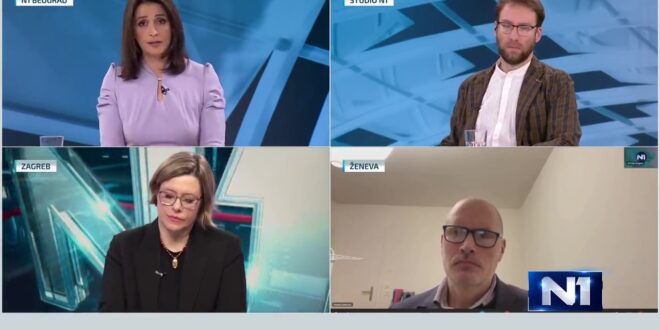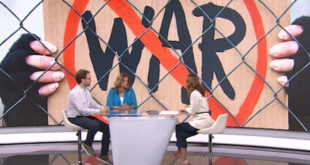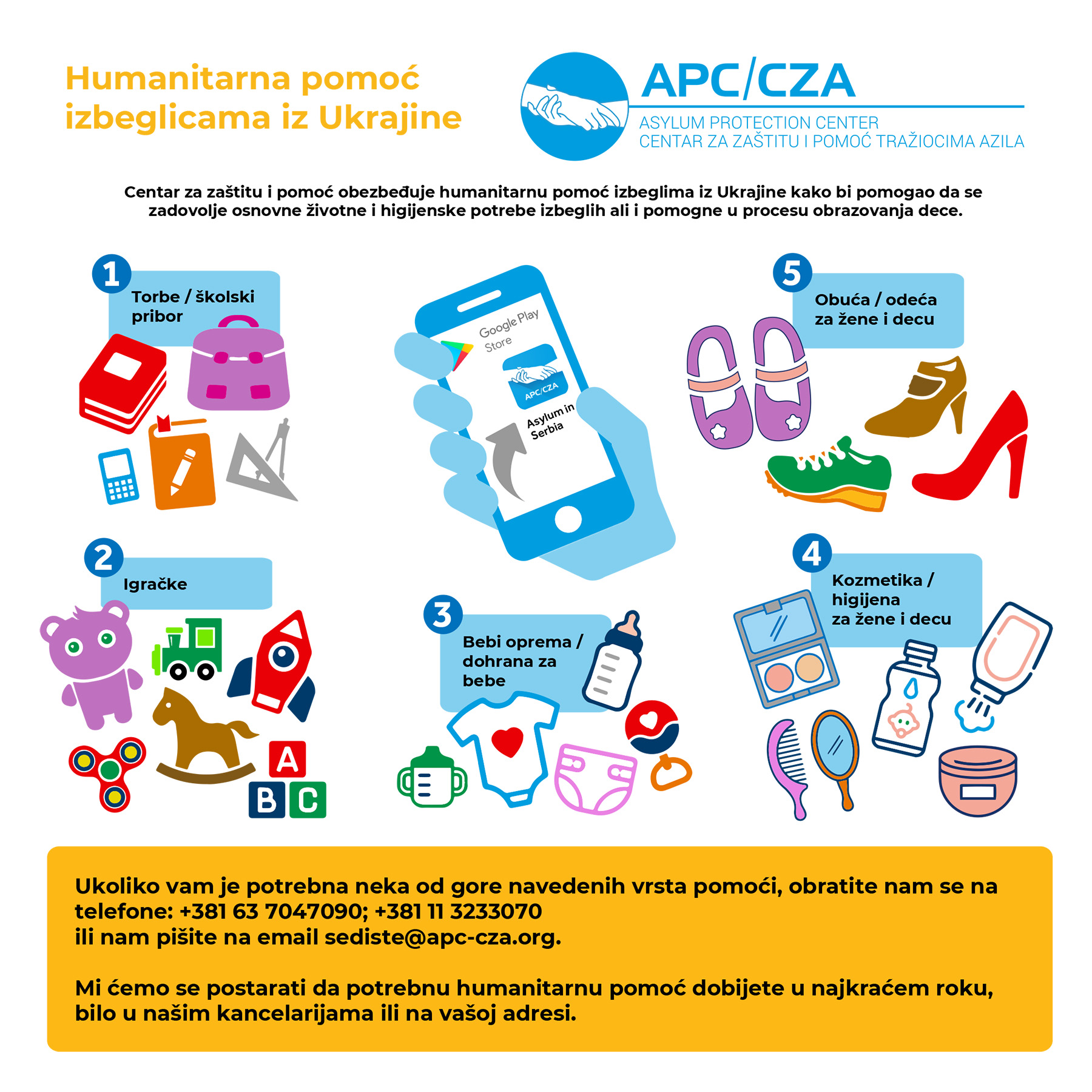Source: N1
Video: N1
Belgrade, March 6, 2023– In the show Global Focus on N1 television, the guests were Radoš Đurović in front of Asylum Protection Center, Ivana Dragičević, research journalist from Zagreb and Matthew Saltmarsh from UNHCR. They discussed the development of EU policies in the field of asylum and migration as well as the consequences of the same policies at the global, European and Balkan level, considering the rights and position of refugees, but also in the context of natural disasters and a specific earthquake in Turkey.
Radoš Đurović reviewed the growth trends of the influx of refugees in Europe in the past five years, with an increased inflow of people entering Serbia, that more than 90,000 entered Serbia, and the biggest number of them continued further.
“The increase is as in 2016, the biggest in five and more years. This Balkan Migrant route is dominant in the terms of influx of people in the EU, there are a number of reasons why this is happening and it will not be less active in the coming period”, he says.
The EU response is not in building solidarity, but in the contrary, in the undertaking of political, financial and legal and diplomatic measures, and in order to make transit countries from home countries to the EU borders active in the defense concept from migration with the aim to cease the global migration to the EU or to make it significantly slow and on hold.
In such initiatives, the policy of fences and physical barriers play a significant role in practice, as an instrument that gives short-term results and the illusion they are the fastest ones.
However, the direct consequence of the fence policy is astronomically rapid development of smuggling, because refugees pushed from the external EU borders do not go thousands of miles back to their countries of origin, but they are returned, pushbacked in the majority of cases, only a few tens of meters back to the countries to the EU neighboring countries. From there, these poor people do not have an alternative, do not have where to go, but to find a smuggler who would accept and help them cross barriers and fences but not without the high price.
Đurovic states that the Hungary policy of the wall construction did not cease migration, but on the contrary, Hungary, despite huge efforts and finances, remained the most penetrable EU border, through which passed thousands of migrants last year. Almost no one who tried to cross the fence, after a few times succeeded, of course with the bountiful and costly help of smugglers.
Dragićević reminded that Croatia has become a member of Schengen since January 1 and that the control regime should be tightened, but that the influx of people is not stopping. The city of Rijeka and the same county are especially affected. People come with the intention of continuing further to the EU members, which are located more on the West.
“Be it is smaller or bigger during the year, but the migration question will be open for generations to come. The fact that Croatia entered Schengen did not close the passing of people, but on the contrary, they still pass and go further, Croatia is not a destination”, she says.
The UN High Commissioner Spokesman for Refugees Matthew Saltmarsh reminded that the number of displaced people in the world has exceeded 100 million, which was also affected by the situation in Ukraine.
“It is not just Ukraine, we have been telling for years there are situations with migrants that are delayed and for which there is no solution. Afghanistan has been in the war for about forty years, it is 12 years since the beginning of the ongoing war in Syria, the millions of Syrian refugees are in a difficult situation. East Africa, on the horn of Africa there are droughts, also wars, causing people to flee, in Sahel, the situation is similar, Latin America, more than seven million people left that region. Wherever you look at there are conflicts, situations that make people go. The problem is that the international community was not capable to solve fundamental reasons why people leave”, Saltmarsh said.
After a horrendous earthquake that hit Syria, he says they are trying to deliver humanitarian aid, as well as the renewal of infrastructure is needed.
“The situation is quite difficult, there were political problems in terms of getting the access across the border, luckily, a deal was reached, we can deliver from Turkey. It is logistically very complicated, but the UN is trying to deliver help” Saltmarsh said.
He warns of a huge problem with human smuggling.
“Smugglers are resourceful, the best way to solve these policies is the international responsibility. Everyone to do their part. The vast majority of refugees are in poor countries, these countries have a disproportionate burden, countries in Europe play the role by financing the UN, but they can fix laws on asylum, solidarity mechanisms”, he thinks.
Dragićević added that on the one hand, Europe shows solidarity, which we saw in the 2015 crisis, but reminds that later Angela Merkel went to Erdogan and concluded the agreement.
“It cannot be said that solidarity does not exist, a bigger problem is politics, agreement with countries from where refugees and migrants come from, and the crucial thing that is being mentioned are smugglers. Who are the smugglers? Which mafia are they, organized criminals working between continents, it is a more lucrative job from cocaine and weapon smuggling. Nobody talks about that, I did not hear that some kind of boss was caught, I do not know who these people are. It is a topic that is still not starting to be seriously discussed”, said the journalist from Zagreb.
Đurovic added that Serbia is encountering the EU pushbacks- from Hungary, Croatia and Romania, which, he states, is the practice dating from 2016 and now is taking on a more significant scale. He also says the treatment toward refugees changed and some EU member states apply force.
“The use of pure force on the border does not solve the problem, just delays the necessary situation for that country, by that strengthens violence and these people become victims. The answer we hear is that migrations must stop, to exacerbate the situation for people to reach safe countries. The fences and walls do not work, Hungary is the most penetrable country Serbia borders with, smuggling groups worked. When you push people in Serbia, you have not returned them to the country of origin, these are people who do not have where to go. The wall policy leads to strengthening smuggling and does not solve the problem. That is why Hungary and Austria are demanding Serbia to take on the fight on the southern borders”, said Đurović.
When you have a fence policy on the field, many will offer exploitation, Đurović added.
“It is a huge amount of money in circulation, many experts say that human smuggling is more lucrative from smuggling weapon and drugs. In the eyes of refugees, the smuggler is not someone who would abuse them. They offer to place them somewhere and cross the border, money makes many people to involve in it, those are organized criminal structures, the connections between smuggling groups are often of regional or interstate character. We witnessed the armed conflicts, there is a smuggler explosion. They did not hesitate to use weapons and force, those are developed structures”, said Đurović.
 AzilSrbija AzilSrbija
AzilSrbija AzilSrbija





